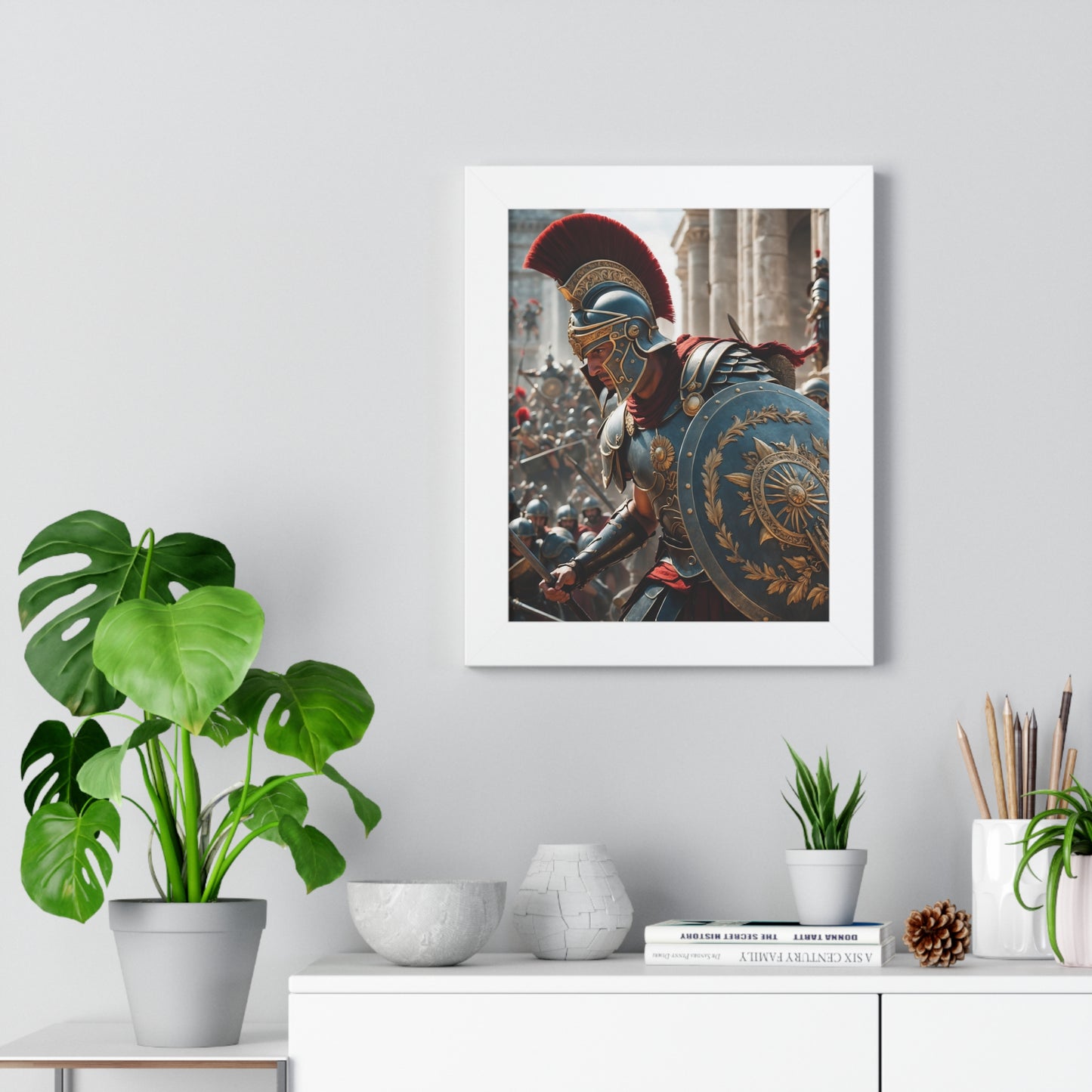Alexander the great
Alexander the Great: The Legendary Conqueror
Few names in history resonate like Alexander the Great. Born in 356 BC, the son of King Philip II of Macedon and a student of Aristotle, he grew up with an unrelenting ambition: to conquer the world.
At just 20 years old, after his father's assassination, he seized power and embarked on an unprecedented military campaign. In just a few years, he crushed the Persian Empire of Darius III, taking Babylon, Susa, and Persepolis. But Alexander didn’t stop there. Pushing ever further, he reached India, where his exhausted troops forced him to turn back.
A brilliant strategist, he transformed his empire into a melting pot of cultures, spreading Hellenism and founding dozens of cities, including the famous Alexandria in Egypt. Though his reign was short, it changed the ancient world forever.
But in 323 BC, as he prepared for another conquest, he mysteriously died in Babylon, at only 32 years old. His vast empire soon fractured, but his legacy lived on. He reshaped the map of the world and inspired generations of rulers.
Alexander the Great: The Young King Who Defied the Gods
When Alexander was born in 356 BC, a prophecy foretold that he would rule the world. His father, Philip II, had made Macedonia a formidable power, but it was Alexander who would make it immortal.
At 20, he inherited the throne and embarked on an audacious mission: to destroy the mighty Persian Empire. With an army far smaller but highly disciplined, he triumphed at Issus and Gaugamela, forcing Darius III to flee.
But Alexander wasn’t just a conqueror—he was a visionary. He adopted local customs, was declared the son of Zeus-Ammon in Egypt, and dreamed of uniting East and West. He spread Greek culture through cities like Alexandria, which became hubs of knowledge and commerce.
His journey led him to India, where he faced King Porus. But it wasn’t his enemies who stopped him—it was his own men. Weary of endless battles, they refused to go further. Frustrated, Alexander turned back and returned to Babylon, where he mysteriously died in 323 BC.
His empire crumbled, but his name endured through the centuries. Hero or tyrant? It doesn’t matter. Alexander remains a symbol of boundless ambition and greatness.
Alexander the Great: The Unmatched Strategist
Alexander the Great was not just a conqueror; he was a military genius without equal. His campaigns, executed with flawless precision, are still studied today.
With an army of just 40,000 men, he faced the millions of the Persian Empire. His secret? Revolutionary tactics:
✔ Lightning-fast cavalry, led by Alexander himself.
✔ A near-impenetrable phalanx, crushing enemy charges.
✔ Mastery of logistics and intelligence, always staying one step ahead.
His greatest masterpiece was the Battle of Gaugamela (331 BC). Facing the massive army of Darius III, he feigned retreat before exploiting a critical weakness. The result? The Persian Empire collapsed.
But Alexander was more than just a general. He wanted to unite cultures, training his soldiers in local traditions. He married a Persian princess, Roxana, and encouraged his men to do the same.
His reign ended abruptly at 32, but his influence remains immortal. Napoleon, Julius Caesar, and many others tried to match him—but none succeeded.
Alexander the Great: The Architect of a New World
When Alexander set out to conquer, he didn’t just want to win—he wanted to reshape civilization.
After defeating Persia, he adopted local traditions and integrated Persian nobles into his administration—a radical move for the time! He encouraged the blending of peoples, imposed Greek as a common language, and respected local customs.
His greatest legacy was Alexandria, a city where Egyptian, Greek, and Persian knowledge met. The legendary Library of Alexandria became the intellectual heart of the ancient world.
But his vision of a united empire created tensions. His soldiers, weary, rebelled in India. Forced to turn back, he returned to Babylon, where he fell ill and died in 323 BC. His empire, too vast, quickly fragmented.
Yet his dream of a borderless world lived on, influencing Rome, Byzantium, and even modern times.
Alexander the Great: The Dreamer Who Touched Immortality
Alexander didn’t want to be just a king. He wanted to be a mythical hero, a new Achilles.
His entire life was a quest to prove his greatness. At Gordium, he cut the legendary Gordian Knot, fulfilling an ancient prophecy. In Siwa, Egypt, an oracle declared him the son of the gods. These symbols only strengthened his charisma among his troops.
But his relentless ambition came at a cost. He pushed his men to their limits, always seeking new conquests. His campaigns in India marked a psychological defeat—his soldiers, exhausted, mutinied.
Returning to Babylon, he died at 32, leaving an unanswered question: what if he had lived longer?
Hero, visionary, or tyrant? Alexander remains above all an eternal legend.
👉 Immerse yourself in the fascinating world of Alexander with our exclusive collection!
Printify
Spartan Unisex Jersey Short Sleeve Tee- Greek spartan warrior t-shirt
Share










Printify
Spartan Hoodie – Greek spartan Hooded Sweatshirt
Share












EmpireShopAvenue
Alexander the Great poster pack and mini-bio
Share


GREEK HOPLITE Unisex Heavy Blend™ Hooded Sweatshirt
Share










GREEK HOPLITE Unisex Jersey Short Sleeve Tee
Share











GREEK BATTLE SCENE Unisex Jersey Short Sleeve Tee
Share




































GREEK LEGENDARY HOPLITE Black Mug (11oz, 15oz)
Share









GREEK LEGENDARY HOPLITE Framed Vertical Poster
Share






GREEK LENDARY HOPLITE Impact-Resistant Cases
Share














































































GREEK WAR SCENE Unisex Heavy Blend™ Hooded Sweatshirt
Share




















